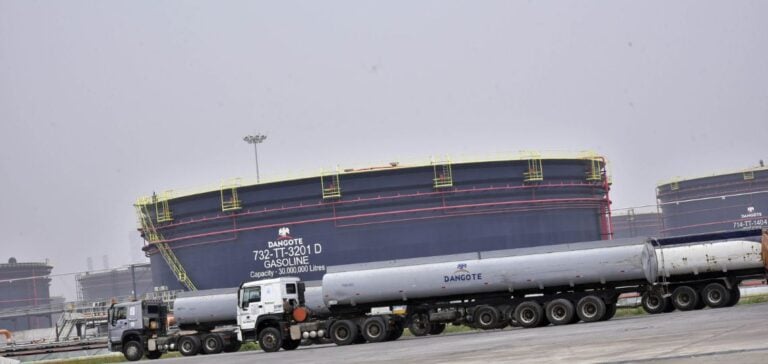The Dangote refinery, one of the largest in Africa with a capacity of 650,000 barrels per day, faces a crucial challenge: insufficient supply of Nigerian crude.
Although regulations require producers to prioritize supplies to local refineries, Dangote is unable to obtain the volumes needed to operate at full capacity.
In September, of the 15 cargoes required, only six were allocated by the Nigerian National Petroleum Corporation (NNPC), exposing the refinery to the risk of under-performance.
The supply problem is exacerbated by the demands of international oil companies (IOCs), which charge premiums of $3 to $4 per barrel to supply Nigerian crude.
These difficult conditions are forcing Dangote to consider import alternatives, increasing operating costs and further complicating cash flow management, already impacted by the depreciation of the naira.
A major challenge for production
The situation highlights dysfunctions in the application of domestic supply obligations by the Nigerian Upstream Petroleum Regulatory Commission (NUPRC).
Dangote has expressed concern about the ineffectiveness of these regulations, pointing out that the refinery could be forced to cut production if crude supplies do not improve.
A key factor in this crisis is NNPC’s underperformance in deliveries, which stand at 82,000 barrels per day instead of the 300,000 forecast.
As a result, the refinery’s production targets, which aim to reach 85% of installed capacity by the end of the year, are under serious threat.
This situation also highlights the growing tensions between the various players in the sector, who have to navigate an increasingly complex environment.
Recourse to crude imports, mainly from the USA with WTI Midland, adds a further layer of complexity.
Dangote has already imported around 15 million barrels of this crude to maintain its operations.
This dependence on imports, while a temporary solution, cannot be a long-term strategy for the refinery, given the high costs and risks associated with international market fluctuations.
Losses linked to naira fluctuations, amounting to around 2.7 trillion naira for the year 2023, underline the urgency of finding sustainable solutions.
The Nigerian government recently authorized the purchase of 450,000 barrels of crude oil in naira, with the aim of reducing the impact of local currency fluctuations on refinery operations.
However, this measure does not fully compensate for the challenges facing Dangote.
The evolution of the Nigerian oil sector and the refinery’s future performance will largely depend on the ability of regulators to enforce domestic supply obligations, and on cooperation between the various players.
The success of the Dangote refinery is crucial not only for the company itself, but also for Nigeria’s entire oil value chain and the country’s energy ambitions.





















